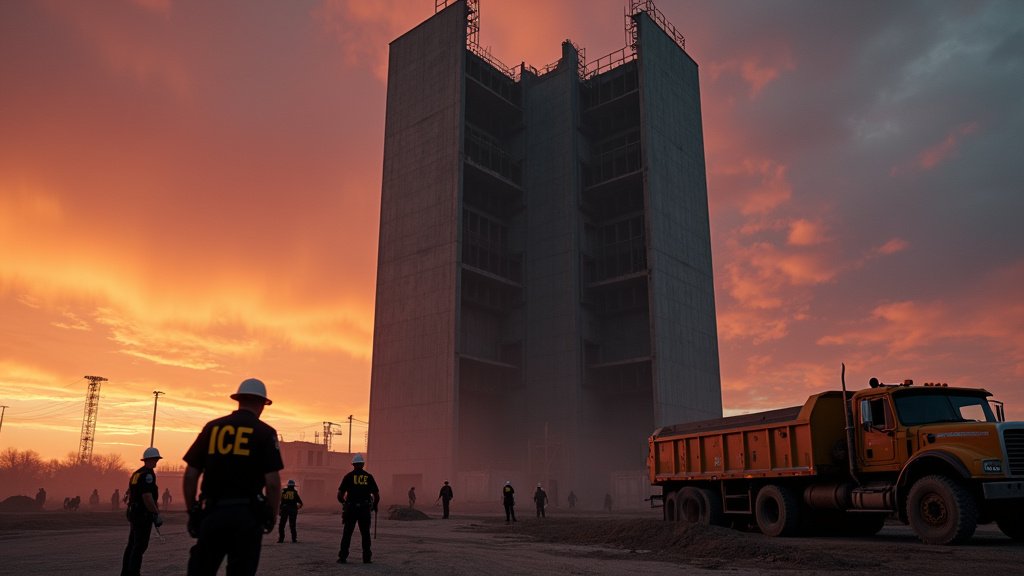Texas House Gridlocked Over Redistricting, Democrats Flee State
Austin, TX – Legislative business in the Texas House of Representatives ground to a halt today, a casualty of a strategic exodus by Democratic lawmakers. The absence of these representatives prevented the quorum necessary to conduct business, specifically to vote on a new congressional map that has been a focal point of partisan contention. Governor Greg Abbott responded swiftly to the unfolding situation by issuing civil arrest warrants for the absent Democratic legislators.
Democratic Exodus Blocks Key Vote
The Democratic members of the Texas House, in a dramatic bid to derail the passage of a congressional redistricting plan, have left the state. Their departure intentionally deprived the House of the required quorum, effectively halting any proceedings that would lead to a vote on the contentious map. This tactic, employed by the minority party, aims to leverage pressure on the majority party to reconsider or alter legislation deemed detrimental to their constituents or political interests.
The congressional map, a regular feature of legislative sessions following census data, is particularly sensitive this cycle, with Republicans seeking to solidify their majority in Texas’s congressional delegation. Democrats argue the proposed map is an extreme example of gerrymandering, designed to disenfranchise voters and entrench Republican power.
Governor Abbott Issues Arrest Warrants
In direct response to the lawmakers’ absence, Governor Greg Abbott declared their actions to be unlawful and a disruption of the legislative process. He subsequently issued civil arrest warrants for the Democratic legislators who had left the state. While these warrants carry legal weight within Texas, their efficacy across state lines remains a significant practical and legal hurdle. The governor’s office maintains that the lawmakers are neglecting their duties and that the state has the authority to compel their attendance.
This confrontation highlights the deep divisions within Texas politics and the increasingly aggressive tactics being used by both parties to achieve their legislative objectives. The ability of a minority to disrupt the majority’s agenda through strategic absence is a recurring theme in legislative bodies nationwide, but the scale and direct response from the governor’s office in Texas have drawn particular attention.
Congressman Fallon Criticizes Democratic Tactics
Texas Republican Congressman Pat Fallon weighed in on the controversy, offering a starkly different perspective. Fallon criticized the Democrats’ actions, characterizing them as an abandonment of their responsibilities. He drew a parallel between the situation in Texas and what he described as gerrymandering efforts in “blue states,” suggesting a broader pattern of political maneuvering across the country. Fallon’s comments underscore the Republican narrative that the Democrats’ move is undemocratic and self-serving, aimed at obstructing legitimate governance rather than engaging in substantive debate.
National Economic Focus: Trump Signals Tariff Expansion
In parallel developments that underscore the diverse range of pressing issues facing the nation, President Trump indicated that broader tariffs on semiconductors would be announced in the near future. The President linked this potential trade action directly to the need to bolster domestic production capabilities. This announcement signals a significant move in economic policy, potentially impacting global supply chains and the technology sector. The focus on semiconductors highlights their critical role in modern industry and national security, and the administration’s stated intention to prioritize domestic manufacturing reflects a broader trend of economic nationalism.
Broader Legislative Landscape and Texas Recovery Efforts
Beyond the immediate legislative crisis in Austin and national economic pronouncements, the broader landscape of governance continues to be shaped by other significant issues. Stalled Senate nominations represent a backlog in key federal appointments, potentially impacting the functioning of various government agencies. Furthermore, disaster relief efforts in Texas remain a critical concern, with ongoing work to address the aftermath of recent weather events and natural disasters. These efforts underscore the persistent challenges that require federal and state cooperation to ensure the safety and well-being of Texans.
Conclusion: A State Divided
The current impasse in the Texas House, driven by the Democrats’ strategic absence and met with the Governor’s forceful response, presents a stark picture of the political climate. While lawmakers grapple with redistricting and other pressing state matters, national attention is also fixed on economic policies like potential semiconductor tariffs. The interplay of these state and national issues, from legislative stalemates to economic strategies and disaster recovery, continues to define the ongoing news cycle and the challenges facing leaders across the country. The resolution of the Texas House situation remains uncertain, with the quorum unfulfilled and the fate of the congressional map hanging in the balance.





